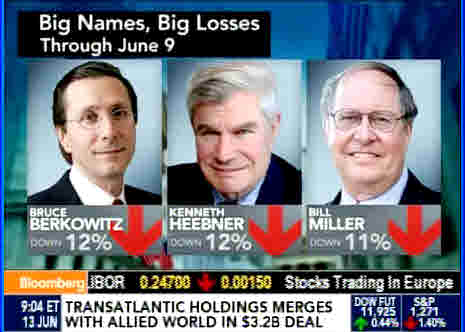For those who remember effective tax rates and growth with pain beyond words in Economics of the 70's and 80's.
http://www.cbo.gov/ftpdocs/62xx/doc6208 ... Entire.pdf
My point is 20 percent effective rate and the Government "Federal and State" leaves us alone period. It is not our fault they are incompetant.
Revenues as a share of GNP rose from
17.6 percent in 1976 to a peak of
20.1 percent in 1981. Because of tax cutting legislation passed in 1981 and the recession that began in the fourth quarter of that year, the percentage dropped to
18.1 in 1983. Subsequent legislation and growth in real incomes will raise the percentage to
19.3 in 1987
Page 34
Page 44
The years chosen for analysis were 1977, 1984, and 1988. The two historical years were years of relatively high growth in gross national product, declining unemployment rates, and rising but relatively modest rates of inflation. The years chosen are separated by important changes in federal tax
laws. In 1977, the Tax Reform Act of 1978 and the Economic Recovery Tax Act of 1981 had not yet been enacted. By 1984, those changes were in place, but payroll tax increases enacted in 1983 and the Tax Reform Act of 1986 were yet to come. By 1988, most changes from the 1986 act will be in place. Between 1977 and 1984, the distribution of total federal taxes became less progressive. This change primarily reflected a shift in the tax burden at both extremes of the income distribution. Effective tax rates (the ratio of taxes to family income) rose for the 10 percent of families at the lowest end of the distribution and fell for the 10 percent of families at the highest. Between 1984 and 1988, the distribution of taxes is expected to become more progressive but to remain less progressive than in 1977.
We made things work and the 1980's as tough as they were and onward we seen the expansion of the global economy at the taxpayers expense from there on. If Corporate does not want to fly a flag and the .gov balance sanity in a few more very short years it will not matter...
As we witness the changes over the decades one thing is certain. The free lunch has been over and the TBTF will not cease there model.
Ask your neighbor, I think he will also admit they are walking away. Why work more when they will not, but take more than they should get as
history records the consequences of the fatal deciet. Inflation is theft as is Debt models.
http://www.cbo.gov/doc.cfm?index=5746&t ... uence=1#t4
Effective Tax Rates in Future Years Under Current Tax LawUnder current law--and the assumption that incomes grow at a constant rate between 2001 and 2014--the total effective federal tax rate for all taxpayers drops from 21.5 percent in 2001 to 19.6 percent in 2004 before reversing course and climbing over the next decade (see the top panel in Table 2). From the 2004 low of 19.6 percent, the overall effective tax rate jumps to 21.4 percent in 2005 as most features of JGTRRA and JCWAA disappear--decreasing the child credit, lessening the relief from marriage penalties, and raising the AMT. The effective rate climbs slowly over the next five years,
to 22.1 percent in 2010, primarily because the unindexed AMT affects more and more people and the
growth of real incomes pushes taxpayers into higher tax brackets. The effective tax rate takes another jump to
23.6 percent in 2011 after EGTRRA sunsets and thereafter resumes its slow climb driven by continued real income growth and the widening reach of the AMT (by 2014, nearly 22 million taxpayers will be subject to the alternative tax). Overall, then, under current law, the effective federal tax rate will increase
from 21.5 percent in 2001 to 24.1 percent in 2014.
http://www.newyorkfed.org/aboutthefed/f ... fed18.html <--------- to pay for this.
http://www.bloomberg.com/news/2011-03-3 ... -2008.html
Before the Dodd-Frank Wall Street Reform and Consumer Protection Act (“Dodd-Frank Act”) was signed into law on July 21, 2010, under unusual and exigent circumstances, a Reserve Bank had legal authority to advance credit to individuals, partnerships and corporations that are not depository institutions, after consultation with the Board of Governors of the Federal Reserve System. To do so, the Reserve Bank must have determined that credit was not available from other sources and that
failure to provide the credit would have adversely affected the economy.
They are still not interesting in change because they discount/ignore the light switch events will/may transpire quicker than there latency of fact's that they wish unfunded revenue programs in context that structual facts do not matter to them, and unfunded liabilities can be done by another 10 year program of paper inflated stealth tax measures. Given the mindset the taxpayer is not in a viable position to maintain the republic for spikes which data says should not be the case. The cost will go up but they appear not to be concerned.
http://www.eia.gov/emeu/steo/pub/gifs/Fig23.gif